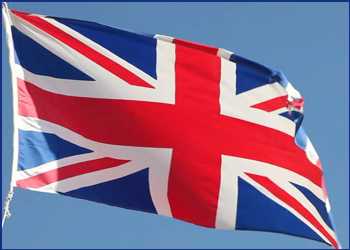
UK Economy Stagnates As Strikes Drag Services Output
The UK economy stagnated in February as strikes dampened services output but the growth for January was upwardly revised, tapering the possibility of a recession in the first half of the year.
Real gross domestic product showed no growth in February, following a revised 0.4 percent expansion in January, the Office for National Statistics reported Thursday. GDP was forecast to remain flat. Growth for January was revised up from 0.3 percent.
In the three months to February, GDP gained only 0.1 percent, confounding expectations for a nil growth. GDP was 0.3 percent above its pre-coronavirus levels.
The production-side breakdown showed that services output slid 0.1 percent after rising 0.7 percent in January. The fall was largely driven by the downturn in strike-hit sectors like education and public administration.
At the same time, industrial production dropped 0.2 percent but this was slower than the 0.5 percent fall in January. The largest contributor to the fall was electricity, gas, steam and air conditioning supply, which was down 2.2 percent.
Manufacturing output remained flat. Economists had forecast industrial and manufacturing output to grow 0.2 percent each.
Meanwhile, construction rebounded 2.4 percent, reversing January’s 1.7 percent drop. The growth was partially driven by a bounce back from the fall in January and continued strength across repair and maintenance.
On a yearly comparison, monthly GDP growth improved to 0.5 percent in February from 0.4 percent in January.
Chancellor of Exchequer Jeremy Hunt said, “The economic outlook is looking brighter than expected – GDP grew in the three months to February and we are set to avoid recession thanks to the steps we have taken through a massive package of cost-of-living support for families and radical reforms to boost the jobs market and business investment.”
“Although today’s GDP figures indicate the UK economy continues to technically avoid a recession, it’s now clear we are stuck in a prolonged period of almost no growth,” British Chambers of Commerce Head of Research David Bharier said.
The International Monetary Fund this week projected the UK economy to shrink 0.3 percent this year before expanding 1.0 percent in 2024.
Separately, the ONS said the visible trade deficit widened to GBP 17.5 billion in February from GBP 16.09 billion in the previous month. Exports decreased 6.3 percent and imports were down 1.4 percent.
The trade in services showed a surplus of GBP 12.7 billion compared to January’s GBP 12.6 billion surplus.
As a result, the total trade balance registered a shortfall of GBP 4.8 billion, bigger than a GBP 3.5 billion deficit posted a month ago.
Source: Read Full Article